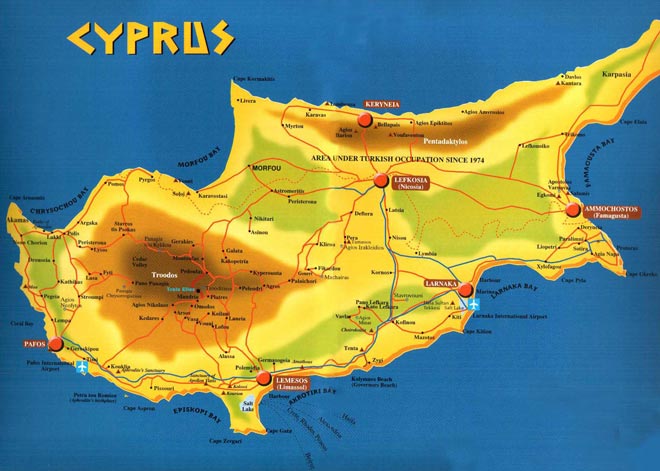Cypriot leaders to embark on settlement and property disputes
 Athens/Nicosia - Rival leaders seeking a solution to reunify the divided Mediterranean island of Cyprus will soon embark upon the complex legal issue of settlement and property disputes, where thousands of individuals stake a claim on property seized decades ago, UN officials said Monday
Athens/Nicosia - Rival leaders seeking a solution to reunify the divided Mediterranean island of Cyprus will soon embark upon the complex legal issue of settlement and property disputes, where thousands of individuals stake a claim on property seized decades ago, UN officials said Monday
Greek Cypriot leader Dimitris Chistofias and Turkish Cypriot leader Mehmet Ali Talat discussed relations between a federal government and the constituent states during peace talks on Monday.
"Discussions will continue Friday... that will be the last discussion for the time being between the leaders on governance and power sharing," said Alexander Downer, special advisor to the UN Secretary-General.
"At the next meeting they will begin discussion on the property question," he added.
Despite the enthusiasm that greeted a new round of peace talks in September following a four-year stalemate, the weekly talks failed to produce a breakthrough in 2008.
The eastern Mediterranean island has been split since 1974 since Turkey invaded the northern third of Cyprus in response to a short- live coup initiated by the military junta then ruling Greece.
Ankara still maintains more than 35,000 troops in the northern part of the island and refuses to normalize ties with the internationally recognized Republic of Cyprus, an EU member.
Since then, countless efforts by the United Nations to find a solution to the decades-old problem have failed, most recently when former president Tassos Papadopoulos led the Greek-Cypriot rejection of UN reunification plan in a 2004 referendum.
Turkish Cypriots had overwhelmingly voted in favor.
Following the election of Christofias last February, in which he ousted hardliner Papadopoulos, immediate steps were taken by both sides to relaunch full-fledged peace talks.
Although a settlement has been thwarted for decades, mediators are optimistic that Christofias and Talat will broker a deal in 2009.
On the agenda are issues ranging from territory and property disputes from more than 250,000 people who have lost their homes, the return of refugees, security guarantees and future governance of the island.
Any deal will need to be approved by Cypriots in separate, simultaneous referendums.
The two sides have agreed in principle to a settlement based on a federation, but the Turkish Cypriots want a loose federation, while the Greek Cypriots want a stronger central government and more limited regional powers which will prevent the island falling back into partition.
There is disagreement on whether a bi-zonal federation would permit free movement or try to enforce the ethnic majorities in the north and the south.
The ongoing conflict in Cyprus also threatens Turkey's aspirations of joining the European Union. Ankara started EU entry talks in 2005, but the Cyprus problem has proved one of the main stumbling blocks in negotiations.
Tensions recently erupted when Cyprus complained to the United Nations that a Turkish warship was harassing oil and gas exploration vessels in its waters. Ankara maintains that the ships were encroaching on its continental shelf. (dpa)